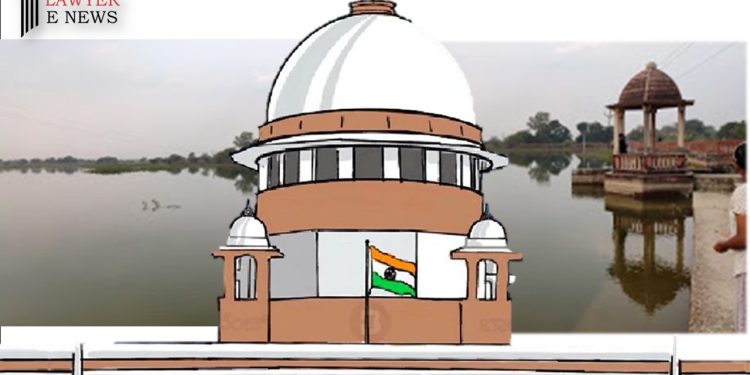NGT Not Bound by C.P.C. But By Principle of Natural Justice – Supreme Court

On 22 March 2023, Supreme Court in a recent judgement regarding Teliyan Talab , Mandasur (SHRAMJEEVI COOPERATIVE HOUSING SOCIETY LTD. Vs. DINESH JOSHI & ORS) held that NGT is not bound by the Code of Civil Procedure as per Section 19 of NGT Act, it is bound by principles of natural justice as a judicial tribunal exclusively tasked with the duty of deciding environmental disputes and causes. Its wide-ranging powers include the ability to pass interim orders, issue injunctions or stays, and require parties to cease and desist from violating environmental enactments. As such, the NGT had to take into consideration that its directions meant that all those living or owning land near the talab, who had obtained sanctions from the Parishad and the TCD, were condemned unheard. (Para No.19)
Facts
The case involves appeals under the National Green Tribunal Act, 2010 questioning orders by the National Green Tribunal directing the Nagar Palika Parishad, Mandsaur to desist from granting sanction to develop and construct properties in the vicinity of a man-made lake in the city of Mandsaur. The original applicant had alleged that construction permissions had been granted to various private parties resulting in depletion of the lake’s area and discharge of untreated waste into it. The NGT dismissed review petitions and directed the demarcation of the water body and the area previously within it to ensure that it was not reduced in any manner. It prohibited grant of permission for construction without the demarcation of the area of the water bodies, and up to the maximum water level. The NGT also directed that the entire Khasra No. 1238 should be protected and that the water body should not be disturbed.
The parties contesting the NGT’s orders argue that the doctrine of finality of judgment and res judicata applies as the lands were purchased by the society over four decades ago and had faced litigation for over two and a half decades when the conversion certificate issued to them was cancelled. The contesting respondents argue that the NGT’s orders do not call for interference as the existence of the Development Plan was a matter of record, and the Parishad did not deny that untreated waste was being dumped into the talab.
Observed and Held
Supreme Court observed that the National Green Tribunal (NGT) had passed orders based on a trace map produced before it without seeking particulars from the parties before it and without issuing a public notice about the pendency of litigation, which resulted in prejudice to all the appellants before the court. The NGT had failed to implead or seek intervention of those likely to be adversely affected by its orders, which violated the principles of natural justice. (Para No. 18)
Supreme Court notes that when some of the appellants approached the NGT in review proceedings, their review petitions were summarily rejected without any application of mind to the existence of the Development Plan that had permitted development of the disputed areas. The orders in review also did not consider the peculiar circumstances concerning the society’s plot, on which a previous litigation had been fought, ending in a decree against the state. The Supreme Court points out that it is well settled that parties are bound by the principle of finality, which means that a decree by a competent court acquires a final and binding nature, especially where it is confirmed concurrently and upheld by the highest court of the land.
Supreme court held that the argument of the society was merited. The court referred to the previous litigation concerning the land owned by the society, which was directly in issue and had resulted in a decree in its favour. The court noted that the NGT had ignored this fact and had summarily rejected the review petitions filed by some of the appellants. The court stated that without any known process by which a decree concerning the same facts could be re-opened, the NGT could not have rejected the society’s contentions. Therefore, the court held that the society’s appeal required to succeed.
The Court allowed the appeal of one society that owned land for which conversion was sanctioned and confirmed by previous court decrees. As for the other appeals, the Court allowed them and directed the NGT to consider the precise boundaries of the talab after a properly constituted committee submits a report and all parties are heard. The committee will consist of officials nominated by the Collector, TCD, Parishad, and Department of Water Resources.
SHRAMJEEVI COOPERATIVE HOUSING SOCIETY LTD. Vs. DINESH JOSHI & ORS




